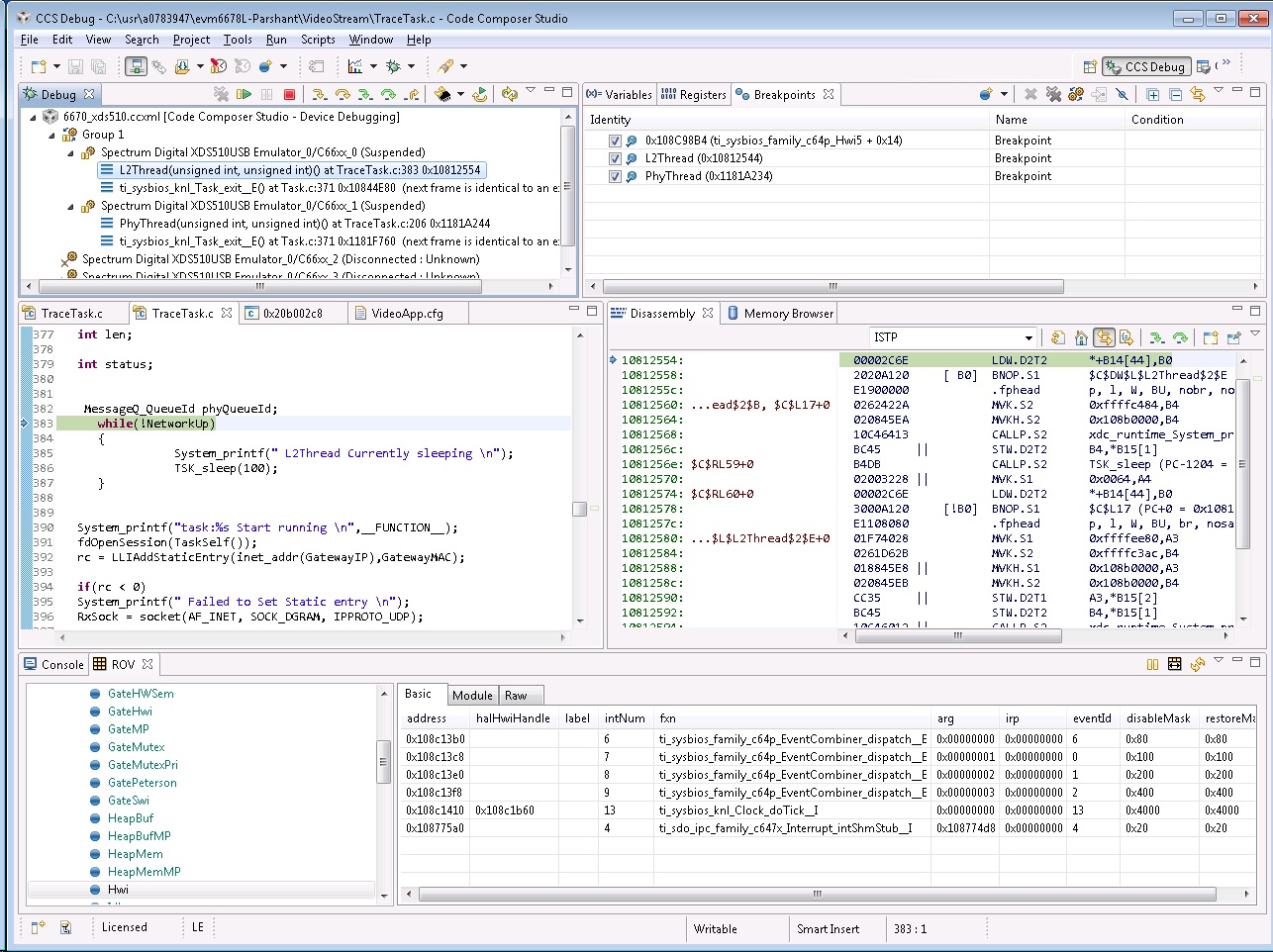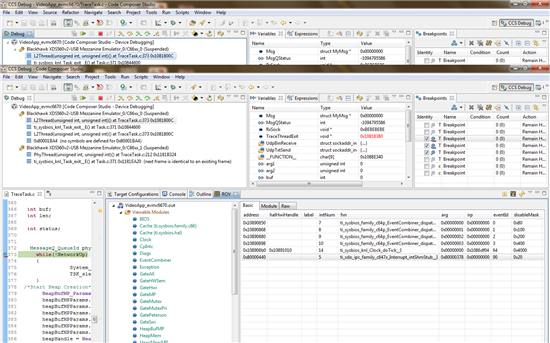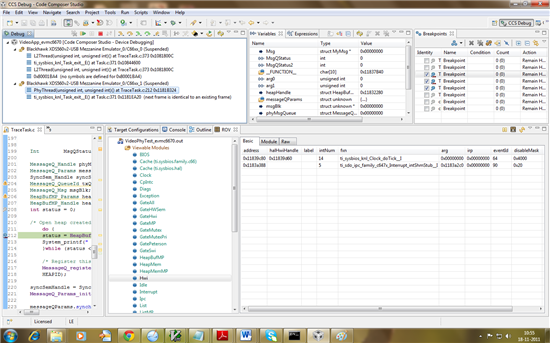1464.VideoPhyTest_evmc6670.rar
Please find attached
1. VideoStream.rar: Contains core 0 code. This code defines two task TraceThread and L2thread.
--L2Thread: Recv packet from socket and write on Core 1 messageQ.
--TraceThread: Reads data on the message queue and send it on socket.
2. VideoPhyTest_evmc6670 : Core 1 code. This code will create a phythread on core 1.
-- Core 1 reads data from its message queue and dump data back to TraceThread(Core 0) message queue.
All queues use the same heap define in Shared memory region(DDR3).
Issue:
--L2thread when trying to open messageQ of Phythread
}
System_printf(" Bind Succesfully\n");
do
{
System_printf("L2Thread going to sleep\n");
(hangs)-->status = MessageQ_open(SOCKINMSGQ, &phyQueueId);
System_printf("status:%d\n",status);
TSK_sleep(500);
System_printf("L2Thread is awake\n");
}while(status < 0);
System_printf("Phy Message Queue open Successfully\n");
---Phythread also hangs when open messageQ of TraceThread
while (MessageQ_open(SOCKOUTMSGQ, &txQueueId)< 0)
{
System_printf("PhyThread going to sleep");
TSK_sleep(500);
System_printf("PhyThread is awake");
}
Regards,
Parshant




